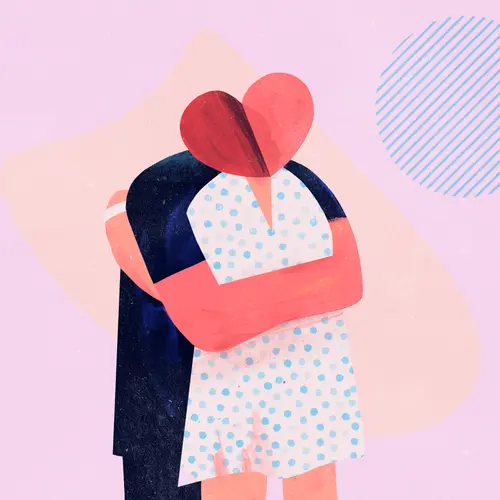Hormone therapy, also known as endocrine therapy, is a type of treatment your doctor may recommend as part of treatment for certain types of ovarian cancer, but not right away. Surgery is the first treatment for most ovarian cancers, often followed by chemotherapy.
Hormone therapy uses prescription drugs to block or slow down hormones like estrogen. This is important because some types of ovarian cancer cells are fueled by those hormones to grow and spread in your body. Curbing those hormones puts the brakes on that.
Who Gets Hormone Therapy for Ovarian Cancer
Doctors often recommend hormone therapy to treat ovarian stromal tumors, which are rare. Hormone therapy is rarely used to treat epithelial ovarian cancer, the most common type of ovarian cancer.
Depending on the type and stage of ovarian cancer you have, your doctor may use hormone therapy as part of your treatment plan if:
- You’ve been treated for ovarian cancer before and the cancer has come back.
- You’ve tried other types of cancer treatments, and they didn’t work well enough.
- The treatments doctors typically try first -- chemotherapy and surgery -- aren’t right for you.
You may also get hormone therapy to keep your ovarian cancer from coming back and to ease some of the issues cancer may cause.
To find out if this type of treatment is an option for you, your doctor will check on whether hormones are fueling your ovarian cancer cells. You’ll get a hormone receptor test to check for hormone receptors on those cancer cells. If the test result is “positive,” that means those receptors are on the cancer cells. Hormone therapy would block those receptors and cut off the supply line of those hormones to fuel the cancer cells.
Hormone therapy is “systemic.” This means that it affects the entire body, not just the ovaries. You’d get it as a shot, or as pills and liquids you take by mouth.
Hormone therapy has been widely studied for breast cancer, but not as much for ovarian cancer.
Keep in mind that hormone therapy for ovarian cancer isn’t the same as hormone therapy to treat side effects from menopause, like hot flashes or vaginal dryness.
Hormone Therapy Drugs for Ovarian Cancer
If hormone therapy is part of your ovarian cancer treatment, you’ll likely also get other treatments like chemotherapy, radiation therapy, or surgery.
The type of drug your doctor will include in your treatment plan will depend on:
- The type of ovarian cancer you have
- The size of the tumor in your ovaries
- Your age
- If hormone receptors are present on cancer cells
Types of Hormone Therapy for Ovarian Cancer
There are different types of ovarian cancer hormone therapy drugs, including:
Luteinizing hormone-releasing hormone (LHRH) agonists. These drugs curb estrogen production in your ovaries’ cells. You might take them if you aren’t in menopause.
You get these drugs as shots at your treatment center or doctor’s office. Your doctor may choose to give it to you every 1 to 3 months, depending on the stage and type of cancer you have. LHRH agonist drugs used for ovarian cancer include:
Tamoxifen. You may know of tamoxifen as a breast cancer treatment. It can also be used to treat ovarian stromal tumors, and it’s less likely to be used to treat ovarian epithelial cancer. Tamoxifen works to keep estrogen in your body from helping your cancer grow and spread.
If tamoxifen is part of your treatment plan, you’ll get regular tests to check on whether it is working properly and manage any side effects you may have. You shouldn’t take tamoxifen if you also take a blood thinner medication such as warfarin.
Research shows that tamoxifen can also raise your risk for other types of cancers like those of the liver, uterus, or endometrium. It can also make blood clots more likely, which can cause serious conditions like deep vein thrombosis (DVT). If you’re taking tamoxifen and notice any swelling or pain in your legs, arms, chest, or shortness of breath, tell you doctor right away. If you have a DVT, you’ll need immediate treatment.
Tamoxifen comes as a liquid or pills. It’s very important to closely follow your doctor’s instruction on how much you should take and when. If you skip a dose or feel unsure how to take it, ask your doctor about it. Don’t take a double dose.
Experts say there needs to be more research on tamoxifen as a treatment for ovarian cancer that comes back (recurs).
Aromatase inhibitors. These medications block a natural substance in your body called aromatase. Aromatase turns hormones into estrogen. Aromatase inhibitors stop that process, which lowers estrogen levels. So these medicines are only for women who’ve been through menopause.
Aromatase inhibitors are used to treat breast cancer. They can also target certain types of ovarian stromal tumors that come back (recur) after treatment, and they can be used for low-grade serous carcinomas, which are another rare type of ovarian cancer and are more common in younger women.
Aromatase inhibitors include:
These drugs are pills that you take once a day by mouth.
Hormone Therapy Side Effects
Side effects from hormone therapy can include:
- Hot flashes
- Dryness in the vagina
- Weak bones if used for a long time (Tamoxifen doesn’t cause this.)
- Joint pain
- Muscle pain
- Loss of sex drive
- Problems with sex
If you notice any of these signs or symptoms, tell your doctor. They may help you manage you side effects better. If needed, your cancer care team can change the treatment plan to find what works best for you.

